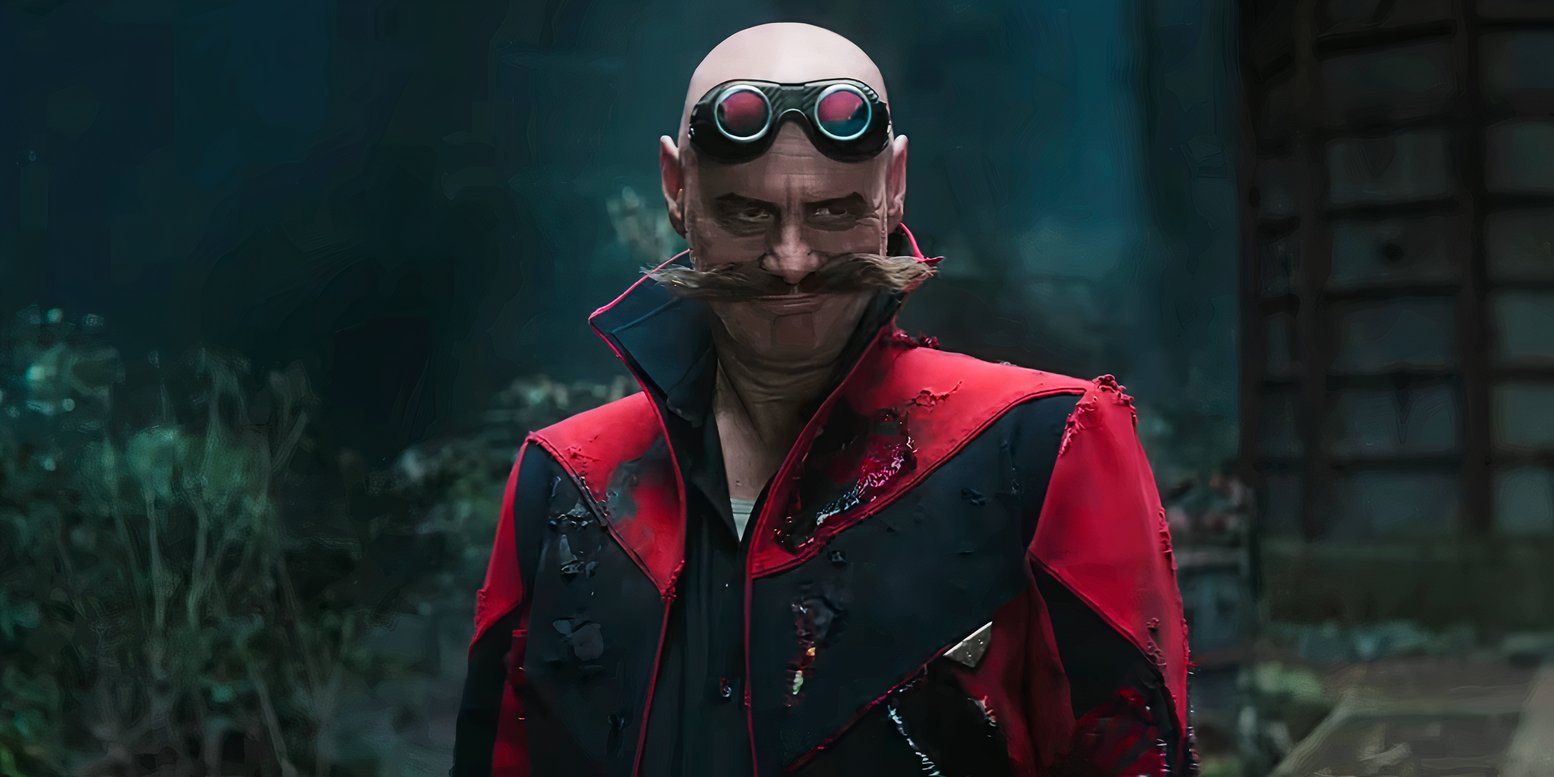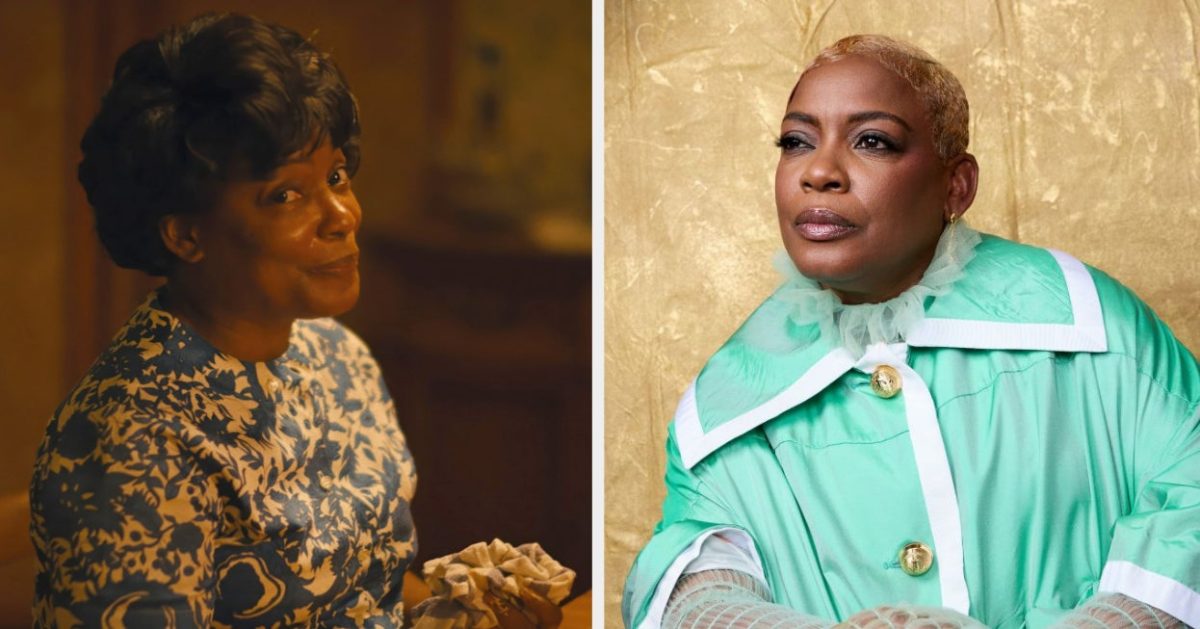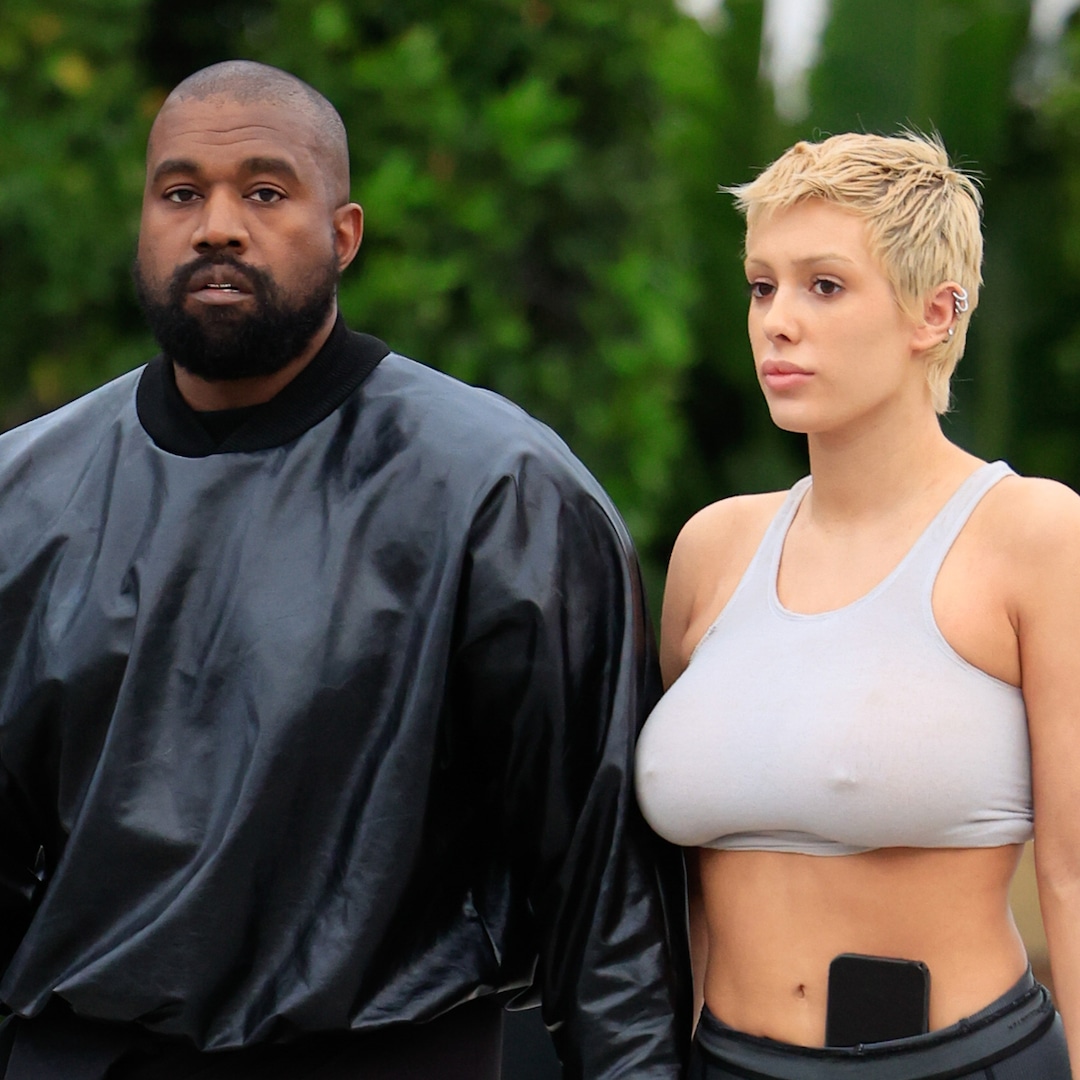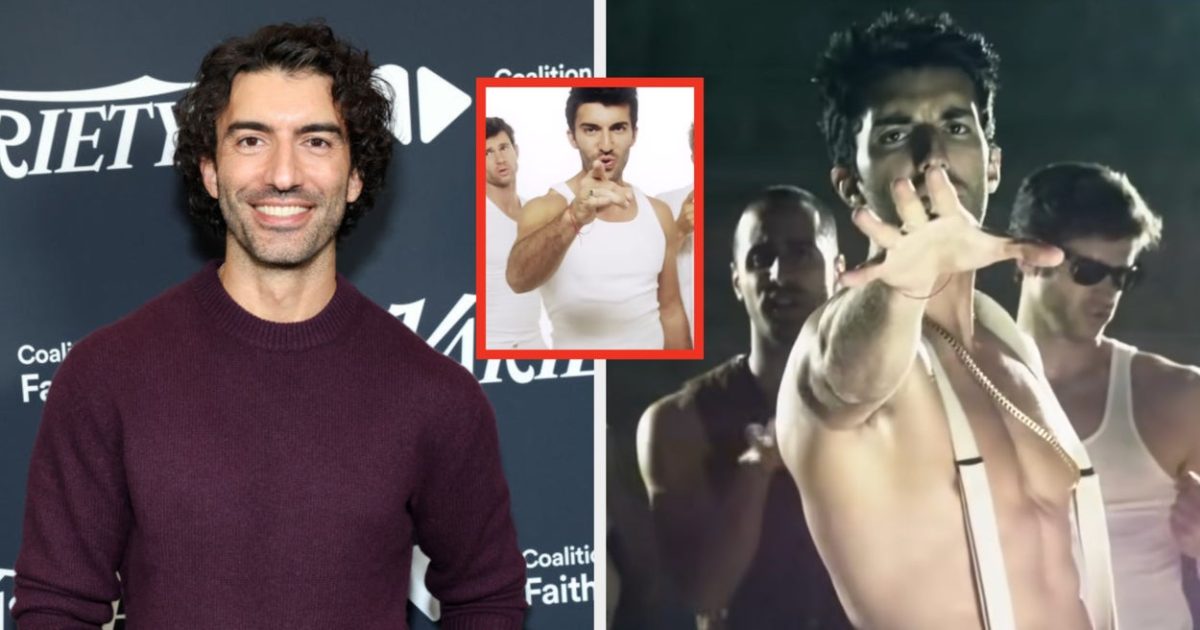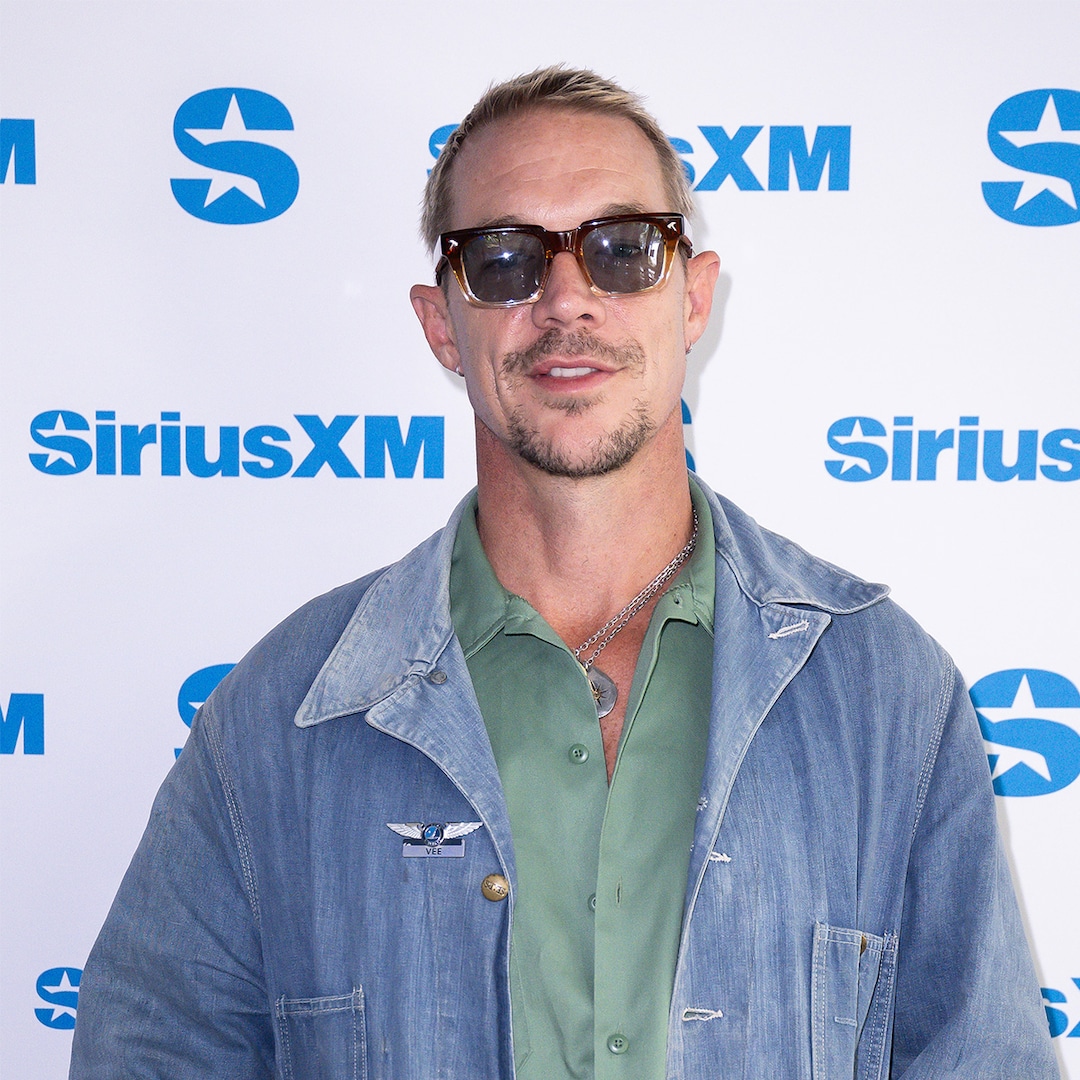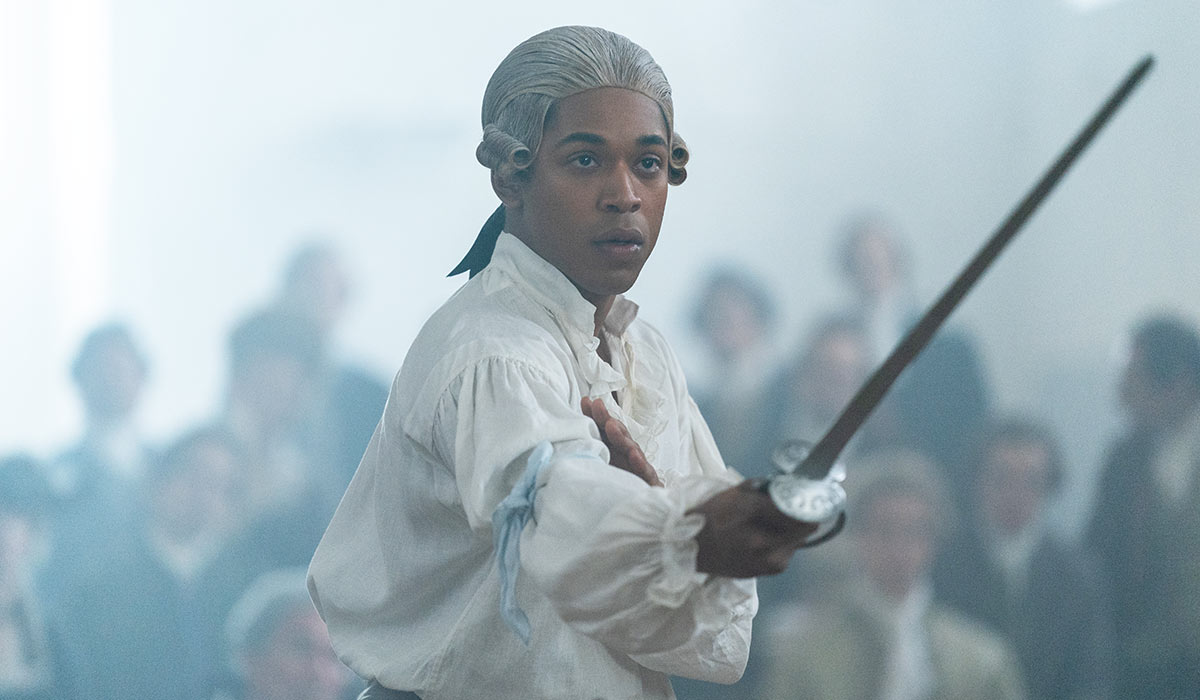
Kelvin Harrison, Jr. Channeled Prince To Become ‘Chevalier’
May 6, 2023
You’ve no doubt read countless anecdotes about how such and such an actor thought themselves a specific skill for a role. They learned how to box or wield a sword. Maybe they had to figure out to be a confining rock climber or deep sea diver. Whatever the case, Kelvin Harrison, Jr., who portrays the almost lost to history Joseph Bologne, Chevalier de Saint-Georges in Stephen Williams’ “Chevalier,” had to learn the violin as close to the level of a top tier mastero as possible. To suggest it was difficult is an understatement.
READ MORE: “Chevalier” Review: An Electric Kelvin Harrison Jr. Leads The Revisionist Black Mozart Drama [TIFF]
“Listen, I’m not that good at riding bikes, but it was definitely harder than I expected it to be,” Harrison, Jr. says. “I thought it would be a bit easier to just kind of pick back up, and the muscles aren’t there, you know? It’s like having to do a split, and you haven’t really been stretching for 20 years, and your hamstrings are tight, you know what I’m saying? You can’t. Your hips are tight; your flexes are not there. It felt like that a little bit. So, I had to really just start to rework the muscles and just really understand the instrument and find a way that made me feel like one with it again. And that took a long time.”
Harrison, Jr. also found an unexpected pop music icon for inspiration.
“I started using Prince as an example, and then I would watch a lot of compilations of Prince being petty or Prince in concert, Prince rolling on the ground at people,” Harrison, Jr. reveals. “And I would try to take that and play into it. And so all these little things started to come together, and then we’ll see how they manifest themselves on the day.”
Over the course of our conversation, the black belt achieving Harrison, Jr. chronicles his long journey to land the role, discovering Chevalier’s “finishing school” training, the challenge of portraying Martin Luther King, Jr. in the next season of “Genius,” and much more.
_____
The Playlist: This project comes your way; what was your initial reaction?
Kelvin Harrison, Jr.: It would be so iconic if I got to do this, but I don’t think that anyone would let me do this. It felt too cool. It felt too epic. I was like, “I’ve never had a role this amazing before.” And I love all the roles that I played, but not at this scale, you know? And then I was just so impressed. I was just so moved by Joseph. He was a rockstar.
Did you have to audition? What was that process like?
You know what’s funny? I actually keep saying that I found out about “Chevalier” in an email through a script, but I actually found out because I went on a general research site, and I sat with them, and I was like, “Hey guys, I would really like to work with you guys.” And they were like, “We would like to work with you.” And I was like, “That’s cool; what you got?” And they were like, “Oh, we have this one thing on Chevalier, but we don’t really know.” And I was like, “Okay.” So then I guess I was like, “I want that,” though. And then I finally got the script, and then I asked for an audition, and they said, “No, we’re not auditioning anyone right now.” And I was like, “O.K.”
And so then some more time passed – because this was before “Cyrano” – and I got “Elvis,” and then finally I met with Steven, and we had a conversation. It was beautiful. And I was like, “Great, so can I do the movie?” And he was like, “So yeah, like…can you do a tape?” And I said, “Hey, let’s do the tape.” So I did the tape, and I did another callback. And then, finally, after a month of waiting, I got the part.
Was it important to Steven that whoever played the role knew how to play the violin?
It was really important to him. And I don’t think he knew that I played the violin. I think all he knew about me was as an actor and I wrote him a letter and I told him that I played the violin when I was seven. And it was a big dream of mine. After Hurricane Katrina happened, I lost the violin, and I kind of shifted things, and I started playing piano and trumpet. I never played again, but I’m not unfamiliar, but I’m not a virtuoso. So yeah, that was the dilemma there.
Was it like riding a bike, or was it harder to pick it back up than you thought it would be?
Listen, I’m not that good at riding bikes, but it was definitely harder than I expected it to be. I thought it would be a bit easier to just kind of pick back up, and the muscles aren’t there, you know? It’s like having to do a split, and you haven’t really been stretching for 20 years, and your hamstrings are tight, you know what I’m saying? You can’t. Your hips are tight; your flexes are not there. It felt like that a little bit. So I had to really just start to rework the muscles and just really understand the instrument and find a way that made me feel like one with it again. And that took a long time.
Did you at least have a couple of months to try and pick it up again?
So, it started off where I just started the fundamentals because they did not have music yet because Michael Abels actually wasn’t on yet. And it took about two months before Michael Abels was actually hired. And then once he was hired, then it took another process for him actually to write the songs. So that’s about three months in that process where I didn’t actually have music, and it was just me practicing things that I thought would be helpful. Then the first piece that came in was the Mozart battle, which at that point I called Steven, and I said, “Well, so, no.”
Wait, what do you mean, “No”? Like, “No, we shouldn’t do this”?
I was like, “You got to get a double.” I was like, “This is not… I don’t… No.” I was like, “I don’t think. Do you know what that requires?” And he was like, “Not exactly, but I know you can do it.” All right, fine dude. Because it was basically just like it was either going to get to do the part or not. He was not compromising.
So did he at least push that to the end of the shoot to give you time?
Yeah, that was the very last thing we shot. But that does not make it easier because there are still six other cues in the movie, and we didn’t know what they were going to be. So then the next few months, I was learning some songs that we didn’t even shoot. I didn’t do anything other than practice and prepare for the movie for just a really long time. And luckily, too, the movie was actually supposed to start a lot sooner. I originally only had two months to prep, and that’s when I really was panicked, and it kept getting pushed [which allowed for] a lot more time.
So what about Chevalier did you find out that either surprised you or helped you embody the character?
His life afterward was really fascinating. And I think knowing that he had that level of activism in him and that boldness and confidence to be able to organize a movement or a regime as he did, I thought that said a lot about his character. And then also, we don’t have this in the script, but he went to La Bossiere’s Academy where he learned how to fence, and he worked with a lot of these violin teachers, but he also went to a…I don’t want to say a finishing school, but there were these older French women that, did you hear about this? They taught him how to be a gentleman pretty much…
I know what finishing schools are. Usually, you just hear about women going to them. You don’t hear about…
Yes. But it wasn’t like tea time; it was how to sleep with an older woman.
Oh, it was that sort of finishing school?
And they would go when they were like 14, or 15. And it was fascinating because it said so much to me about how this man understood sexuality, how he understood just how to win over characters like La Guimard, and how to interact with these people that. How to make himself desirable to distract them from the ways they wanted to just minimize him.
What about the fencing? How tough was that to learn?
It was hard, but it wasn’t as hard as the violin. It just wasn’t as stressful for me. I remember the stunt coordinators were very frustrated with me sometimes because I would never fully do it in rehearsals. I would just go through the motions. Because I was like, “O.K., I get it. It’s choreography to an extent.” And I’m a black belt in Korean martial arts, so I was like, that kind of thing doesn’t like scare me completely. I just had to make sure I knew the choreography to make sure I didn’t get poked in the eye. That was my goal. Just don’t get poked in the eye.
Do you think they didn’t believe you that you were a black belt?
No one believed me. I’m like, “No one believes me.” You see me? Do I look threatening?
No, I mean honestly, I sort of believe people when they say they are a black belt. It’s pretty hard to fake that. Going back to making the film, one of the things I discovered was there are a lot of conflicting things about Chevalier in the numerous biographies of him from the time. Did you discover that as well? And did you feel like, at some point, you just had to push it all away and make him your own?
100%. You should have seen my apartment when I first started. Literally, I had poster boards wrapped around every historical event and every little fact I found in pages. I had a binder this thick. I would go into meetings with Steven, and I think I had more history research materials than he did at times. And he would be like, “All right, enough, good job. I’m glad you did your homework, now throw it away.” And at that point then, you start to find your own rhythm in it. After all the research was done, I went through a phase [where] I just would set up a little photo booth camera, and I would just talk to myself, and I would walk around as Joseph and I would kind of just figure out how I wanted to physicalize him it all.
And then the voice became a big component of it. We talked about it a lot, me and Steven and my dialect coach Jerome Butler. And what was important to us was that he didn’t feel like he was of the space. And so once I started to get the sound of it, we wanted to still feel a little contemporary because, I mean, at the base, we’re not doing French accents, so let’s throw that out the window. So once you start introducing an English-type sound, then, well, how do you make him sound different? Well, he should feel a little American. How do you make him feel Black? Well, he should feel Black. And so those things, once you started getting there, you started to find the sass. And then there’s Prince, I started using Prince as an example, and then I would watch a lot of compilations of Prince being petty or Prince in concert, Prince rolling on the ground at people. And I would try to take that and play into it. And so all these little things started to come together, and then we’ll see how they manifest themselves on the day.
Well, it worked. It was fantastic. And correct me if I’m wrong, but you are either still shooting or just finished shooting a season of “Genius” where you’re playing another historical figure in Dr. Martin Luther King?
Yes. I finished three weeks ago.
What was it like going from playing one historical figure to another, and did it prepare you for the amount of research that was necessary? Or did you feel that you didn’t need to do as much?
Honestly, I thought I would be in good shape. I was like, “I got this.” But the thing about Dr. King was there is so much footage, and arguably Dr. Martin Luther King is the most famous Black man ever. I would argue he’s even more famous than Michael Jackson.
Oh yeah, for sure.
With Joseph, I had so much room to kind of make some stuff up. As I said, I was watching Prince being petty compilations for and putting it in for Joseph. You can’t do that with Dr. King. So it’s a different process, but I wouldn’t say it’s easier. And I wouldn’t say it’s harder; it’s just different.
And also a much longer project. Because it’s a miniseries, right?
Six months of shooting every day. I was there every day. And it is hard. It’s hard. It’s a lot of languages. That’s the biggest thing with Dr. King. It was very different. When you learn the violin, that’s hard. Dr. King is specific because he is a brilliant orator. You’re [watching] a lot of speeches, there’s a lot of dialogue, and he has a specific cadence in a sense, a very specific way of moving the people. So yeah, it’s a dance. Yeah.
“Chevalier” opens in limited release on Friday.
Publisher: Source link
Aunjanue Ellis-Taylor Talks Black Trauma, Nickel Boys
That's beautiful and so refreshing to hear. I’ve seen discourse online with sentiments of “Black films always have to have some type of trauma. Why can’t our characters just be happy?” What are your thoughts on that line of thinking?…
Jan 3, 2025
Kanye West Shares Rare Photo With Wife Bianca Censori
Kanye West and Bianca Censori are looking stronger than ever. The "Heartless" singer shared several rare photos of the pair to his Instagram Story Jan. 2, giving fans a glimpse into their private life. In the photos, Kanye, 47, can be seen snapping pics in…
Jan 3, 2025
"You Can Tell Everything About A Man By The Way He Proposes": If You Never Saw Justin Baldoni's 27-Minute Proposal Video, Here's Why It Is Now Being Called The "Red" Flag Everyone Missed
The video is recirculating with millions of views and new opinions.View Entire Post › Disclaimer: This story is auto-aggregated by a computer program and has not been created or edited by filmibee.Publisher: Source link
Jan 2, 2025
Diplo Admits He’s “Tripping” on LSD During CNN New Year’s Eve Show
Diplo ended 2024 on a high—literally. Indeed, the DJ admitted to Andy Cohen and Anderson Cooper that he was tripping into the new year. “I’m so curious,” Andy told Diplo on CNN’s New Year’s Eve Live with Andy Cohen & Anderson…
Jan 2, 2025


